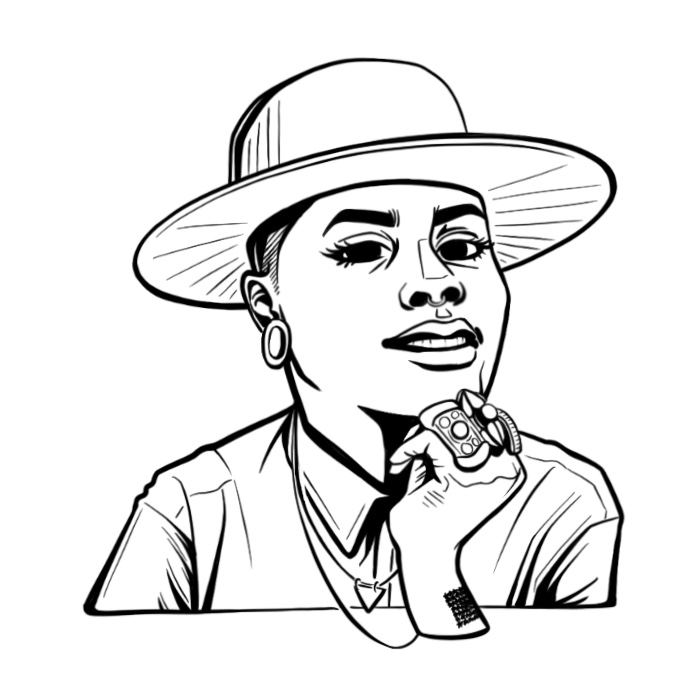-
Business Banking -
Looking Forward
Tips for Reopening Retail After the Coronavirus
The sun stalls over the Cumberland River as traffic dwindles in town. Two children skip ahead of their parents - each wearing masks - down a neighborhood sidewalk, their laughter adding life to Taylor Street. In Nashville, a man stands in front of his storefront, where he should be locking up for the day. But instead he is just checking in. Checking in on merchandise, inventory, his place and the people next door.
Darin Wyly, co-owner of Live Above Clothing, a leisure wear clothing brand based in Nashville, hopes that he will look back on 2020 as a year of overcoming obstacles, especially for retail businesses like his own.
"In the past few months in Nashville our business has been disrupted tremendously," said Wyly. "On March 3rd Nashville was hit with damaging tornadoes, which affected a great part of the city. Soon after we were forced shut our operation due to COVID-19."
Coping with natural disasters, coronavirus shutdowns, civil unrest sparked by racial injustice and massive revenue losses has made this year one of the most challenging for retailers across the country.
“Retail has been forced to evolve at a fast rate all of the sudden, requiring additional investments to survive. This not only includes expanding online capabilities but also coping in some places with requirements for masks, face covering and partitions," said David Cameron, head of business banking at City National Bank. “Retailers have had to be adaptable and to quickly develop new ways to serve their clients, all in what amounts to a very different landscape."
Yet despite the challenges 2020 has presented, Wyly and many other like-minded retailers are hopeful about their futures and more committed than ever to support their local communities and the causes that matter to them.
In a recent survey of small business owners, 68 percent said they expect to recoup any losses related to COVID-19, and 81 percent of businesses expressed confidence in their plans to continue operations during the outbreak.
Fortunately, Wyly and his business partner, Adrian Winston, are comfortable with change. They launched their store in 2013 in the wake of personal trauma—both had experienced depression after losing parents to cancer. Their business soon became a vehicle to express their decision to “live above" the pain and to encourage others to do the same.
“Once we reached a place of healing, we began to notice we were not the only ones who faced adversity."
Darin Wyly, co-founder of Live Above Clothing in Nashville
“Sharing our story allowed us to connect with those who were dealing with similar situations," said Wyly. "Everyone goes through something. We wanted to push the necessary message that no matter what you're going through, you can get through it and not be defined by those circumstances."
While the entrepreneurs started out designing clothes made of quality materials, printing uplifting messages that simply made them feel good, they discovered over time that their mission spoke to others and the challenges going on in the world today.
On March 3, devastating tornadoes tore through Nashville and, just as the community was scrambling to recover from the storms, widespread business shutdowns were ordered due to the coronavirus pandemic.
In an effort to support the rebuilding of their community, Live Above partnered with a local nonprofit organization to provide support to victims in need. All proceeds from "Nashville will Live Above" tees are donated directly to the organization.
For most retailers, shifting hours and reopening dates will continue to evolve in 2020 as virus hotspots flare up and safety precautions depend on local and state regulations. But like Wyly, many of those who are likely to survive and thrive are finding ways to connect with their customers and support their communities - whether their brick-and-mortar locations are open or not.
Though this new retail landscape may look different to your customers, retail in the "new normal" could feel more local, more accessible and more community minded. Here's how:
Reconnect and Empathize With Your Customers - Especially Online
Consider Elizabeth Koke, creative director of Housing Works, a chain of high-end thrift shops in New York City.
Before New York became the epicenter of COVID-19 in March and April, Housing Works had planned to improve e-commerce operations while continuing to accept donations and sell them out of their brick-and-mortar shops, said Koke. But coronavirus made those plans a top priority.
While Housing Works' brick-and-mortar retail shops have remained closed until New York City's second phase of reopening, the nonprofit has begun the process of reopening 10 of its Thrift Shops with added safety precautions, including reduced capacity and a mask requirement. Housing Works will be launching a new thrift e-shop in August, and its online auction site is also open for business in order to fund the causes that matter most to the organization.
"Serving our community is embedded in all that we do. We believe in working to create a better world through sustainable retail, innovative programs to support our clients and relentless advocacy for social justice."
Elizabeth Koke, creative director of Housing Works in New York City
Housing Works is in a unique position, Koke said, as the organization has remained on the front lines of COVID-19 through its healthcare and housing services, even as its retail locations had to close.
Sales proceeds at Housing Works go to support a variety of direct services, including four community healthcare centers that are currently doing COVID-19 testing and more than 700 units of supportive housing for low-income New Yorkers with HIV and other chronic illnesses.
The thrift shops' online focus is not going to be temporary, Koke said. Even when cities and states reopen their in-person stores in the future, she expects less foot traffic and more online shopping across the board.
When You Do Reopen, Focus On Accommodating Your Customers as They See Fit
With fewer people in stores, Cameron believes the retail environment will naturally become more intimate for those who choose to come in. And because so many buyers are going online and taking the necessary precautions before visiting a store, "the buyer experience has already been spoken for and is ready for your accommodations, from face masks to good conversations" he noted.
Because you can expect your customers to have done their online research, to know your product line well and to be interested in your personal take on the item when they visit your store, suddenly there's room for more than just a buyer-seller relationship.
"This type of buying experience means the seller can deepen the product knowledge for the customer on many different levels, as the buyer has already been educated virtually on the basics and wants to know more," said Cameron.
Personal attention, intimate spaces with few people inside and enhanced e-commerce capabilities, such as allowing customers to order online and pick up orders curbside or opt for home delivery, are likely to be important investments for local businesses who want to build meaningful relationships with their customers moving forward.
In fact, 43 percent of small business owners say they plan to expand their businesses using digital technologies, and 31 percent have already added ways to deliver products and services digitally, according to a recent survey.
That's the plan for Stuzo Clothing, a Los Angeles-based clothing brand that serves their customers by celebrating the individual's sense of self.
Stuzo Clothing was established in 2017 as a gender-free clothing company that chooses to accommodate and celebrate whatever shape or form individuals choose. At first, business partners Uzo Ejikeme and Stoney Michelli Love were just silk screening T-shirts with their own designs. As they continued to grow, they started adding more custom-made pieces. They have now grown into a brand that has a large social media following.
Stuzo Clothing originally built a following by selling products at music festivals and joining others at LGBTQ Pride events across the country, but now their plan is to build a really strong e-commerce site to connect with their community and keep customers safe.
"I believe a lot of people don't yet feel safe to start shopping at retail stores. With all of our events canceled, online has to be the main focus until we feel safe enough to open our brick-and-mortar."
Uzo Ejikeme, co-founder of Stuzo Clothing in Los Angeles
Social media is important for any business, but local retailers who want to build a meaningful and engaged following in their hometowns should bring a local element to their social media presence, Cameron advised.
That may mean offering discounts for in-store or curbside purchases, teaming up with other local businesses to provide unique events or special offers or commenting on local issues and supporting local causes.
In all communications though, it is important to stay true to your core message.
“Remember you can never disconnect from your base if you remain true to who you are," Wyly said.
An ability to adapt and refocus is a hallmark of successful small businesses, and in the current environment that ability may be more valuable than ever before.
In preparing for the upcoming months, when the importance of staying home may continue to increase, retail businesses could find a surprisingly comfortable seat at the local table – even if their communities are waiting for them not in-store, but curbside and online.
This article is for general information and education only. It is provided as a courtesy to the clients and friends of City National Bank (City National). City National does not warrant that it is accurate or complete. Opinions expressed and estimates or projections given are those of the authors or persons quoted as of the date of the article with no obligation to update or notify of inaccuracy or change. This article may not be reproduced, distributed or further published by any person without the written consent of City National. Please cite source when quoting.
City National, as a matter of policy, does not give tax, accounting, regulatory or legal advice. Rules in the areas of law, tax, and accounting are subject to change and open to varying interpretations and readers should seek professional advice.






